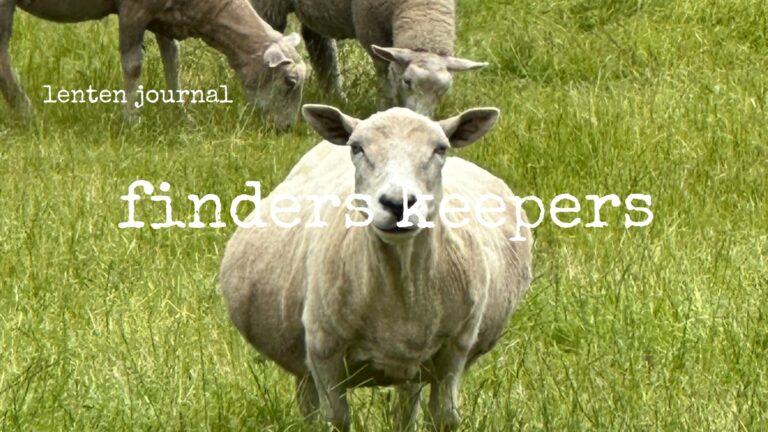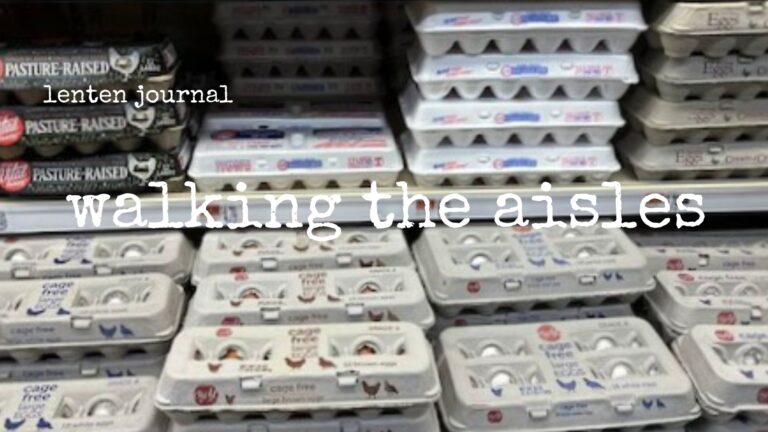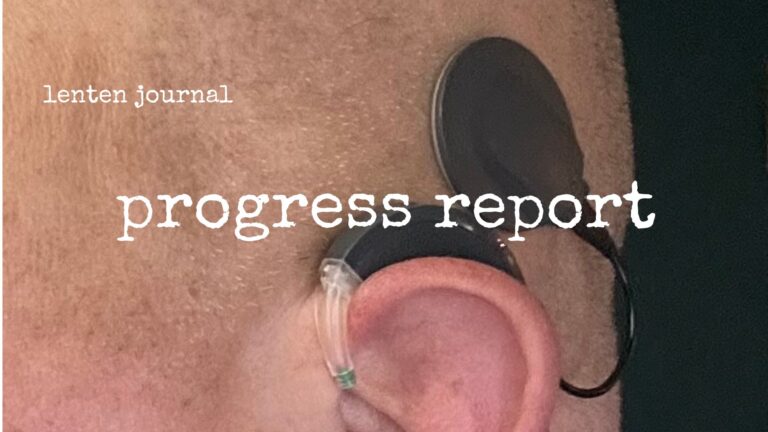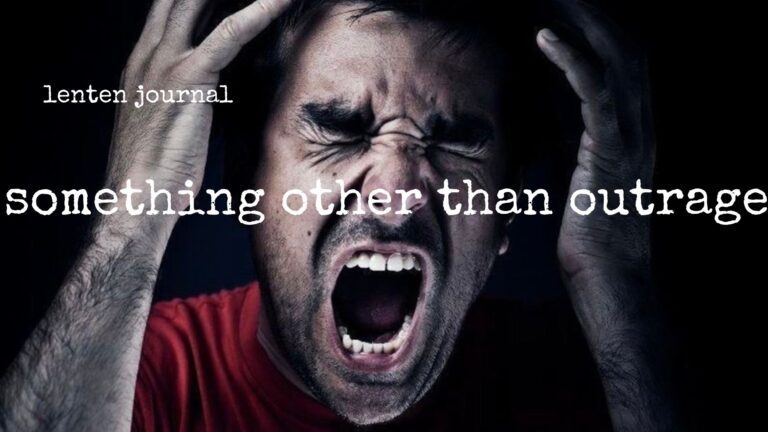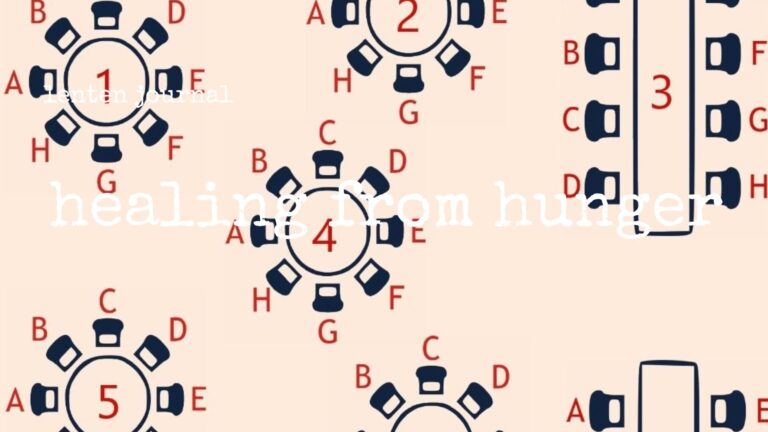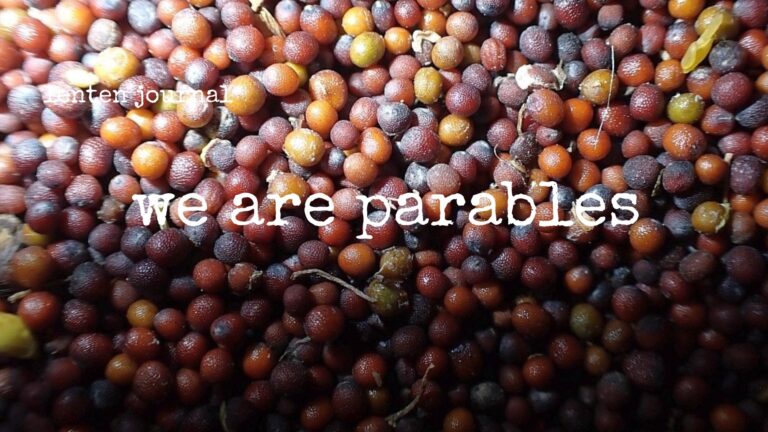I chose a passage today that doesn’t make the Lectionary but has a lot to say in these days. These three verses from Luke hold two parables that say a lot in three sentences.
_________________________
One of the things I like about our ecumenical Ash Wednesday service are the mini homilies each of the pastors gives because we do it without knowing what the others are going to do. Everyone has their own style and their own message to bring to the moment.
George Manukas, the pastor at Dunbar United Church of Christ, spoke first the other night and told a parable—not one of Jesus’, but a parable nonetheless: a story that calls us to ponder what it means for our lives without giving us direct answers. Parables leave us a little bewildered—in a good way.
When George started, I wasn’t really sure where he was going because he began by saying that when God realized everyone was in heaven, God was upset because that seemed like too many people. So God started going through the Ten Commandments, asking who had broken them. Whoever raised their hand was banished to Hell. (By this time, I really wasn’t sure where he was headed.) He went on to say that by the time God got to the seventh commandment, heaven had been cleared of everyone but one hermit who had lived in solitary his whole life, but God was not happy. Heaven was too empty. So God called everyone back and welcomed them.
There was great rejoicing—except for the hermit, who was livid. George said the hermit yelled at God and said, “You could have told me this sooner.”
And then George sat down. He didn’t explain a thing.
We all sat there a bit stunned for a moment. But that’s the way parables work, and Jesus used them frequently and masterfully. Our passage today holds two of them, each one only a couple of sentences, both of them painting pictures of the Realm, or the Economy—the housekeeping system—of God.
First, Jesus said the Economy of God was like a tiny mustard seed that grew into a tree big enough to harbor birds. Then he said it was like a couple of teaspoons of yeast that can cause a whole bag of flour to rise.
At first glance, it feels like Jesus was telling the Palestinian equivalent of The Little Engine that Could, reminding people that little things matter more than we realize. That message is in there, but these stories are working on other levels as well that require those of us who are not Hebrew bakers or farmers to look closer at what is going on in these stories.
As far as the first parable goes, it seems like Jesus was having a little fun in his story, because the mustard that grew in Palestine was a bush—a big bush, up to eight feet tall, but you would have to stretch to call it a tree. And besides that, the bushes were a nuisance. The plants were invasive and were hard to get rid of once they took root because the seeds germinated as soon as they hit the soil. We might even call them weeds.
No one would have planted mustard seeds on purpose because they would never get rid of them, the same way the morning glories we planted on the fence in our garden many years ago show up all over the place.
But Jesus didn’t mention any of that. There’s no indication that he saw the mustard bushes as problems. Or maybe he was saying that God’s economy, which values everyone and grows a society rooted in justice, may seem small but is the kind of glorious nuisance that can’t be wiped out by power and privilege. Love just keeps coming, popping up all over the place. Like a weed.
Then he switched to talking about yeast and how a small amount can make a whole bunch of bread rise. People in his time used yeast daily—except at Passover when they ate unleavened bread. Where the mustard seed grows into a bush you can see, the yeast disappears into the bread dough where it can’t be separated out. It dissolves into the loaf. The only reason you know it’s there is because the dough rises.
Much like the other parable, Jesus didn’t say the yeast is good or bad, just that God’s economy works the same way, disappearing into society and changing things, making things rise up.
A musician friend of mine posted a quote by Pete Seeger that made me think of these parables. Seeger said, “I’m convinced that if the world survives these dangerous times it will be tens of millions of small things that do it.”
Pete was writing in a different dangerous time, and he was speaking in a parable as well.
To say that small things make a big difference is more than a truism: it’s a mystery. It doesn’t make sense, and we know it’s true both at the same time. We are a living breathing parable every time we gather for worship and trust that a room full of people coming together to pray and sing and worship matters in the scope of human history, or even in what happens in the rest of the world today.
It doesn’t make sense and yet here we are, standing in the lineage of those who have showed up pretty much every Sunday for almost three hundred years trusting that it matters to be one of the million small things, one little mustard bush.
It does matter, and it also reminds us that we live in the middle of things we don’t understand or can’t easily explain, which calls us to dig deeper than what appears on the surface, which takes me to another musician: Kendrick Lamar, a hip-hop artist who was the headliner for the Super Bowl halftime show.
I first have to admit that hip-hop is a language I don’t speak well. Pete Seeger is more my speed. As the halftime show began to unfold I knew I was in over my head. I was watching something that was going to take work for me to understand. It demanded more of me than saying, “I don’t get it.”
What I could grasp was it was a master class in effective subversion and protest, much like Pete Seeger singing “This Land is Your Land.” It was also a master class in excellence with what it took to rehearse and coordinate all those dancers and put on a show that ran the length of the field, all the while doing it in a way that was kind of understated and not self-promotional, which is generally the focus of the halftime show regardless of the performer. It was also a master class in courage because he dared to create a performance that was full of meaning in a moment designed for entertainment fluff between two halves of a football game. And he did all of those things with dancers, without traditional melody, and without an acoustic guitar.
Things we don’t understand aren’t automatically bad or wrong. Often, they are parables, invitations to growth and mystery, openings for the Spirit of God to be a bit of a nuisance, an invasive weed like the mustard seed, taking root where we least expect it, or like yeast, expanding our lives in surprising and disquieting ways.
I’ve told you the story about my father mentioning me in a sermon by saying, “In life you have to learn to tell the difference between a problem and a predicament. A problem is something you can change; a predicament is something you learn to live with.” It was a good observation, and it was a set up for his punchline: “I used to think my oldest son was a problem. Now I realize he is a predicament.”
I learned the same thing about him.
After reading our passage for this morning, I would offer a third thing. Life is not made up of just problems and predicaments. Life is also full of parables.
We are parables, odd little stories that let love loose in ways we don’t understand, in a world of parables that invite us to risk beyond our understanding, to reach out beyond our comfort level, and to be a bit of nuisance, little weeds, in the name of love. Amen.
Peace,
Milton


